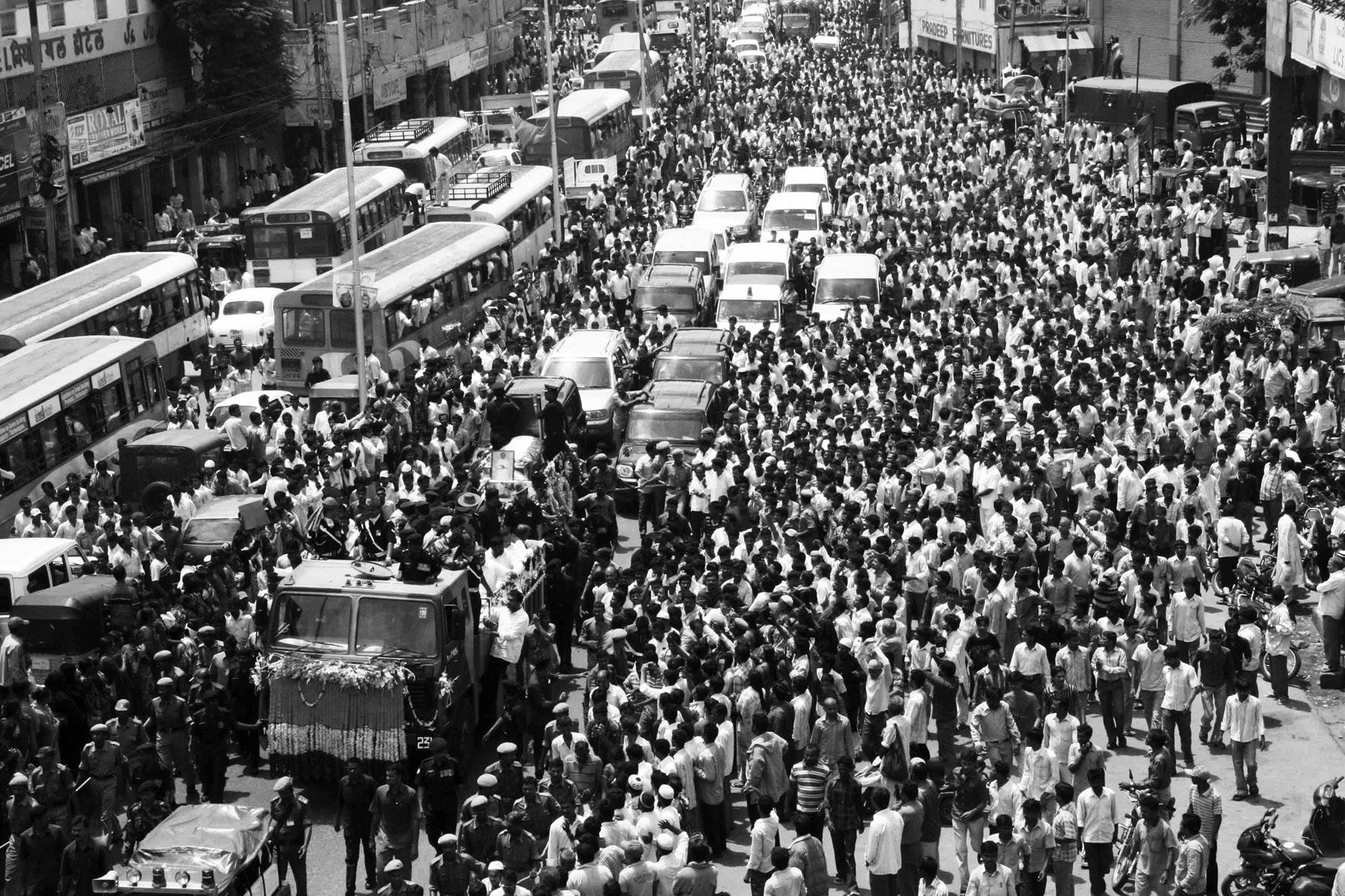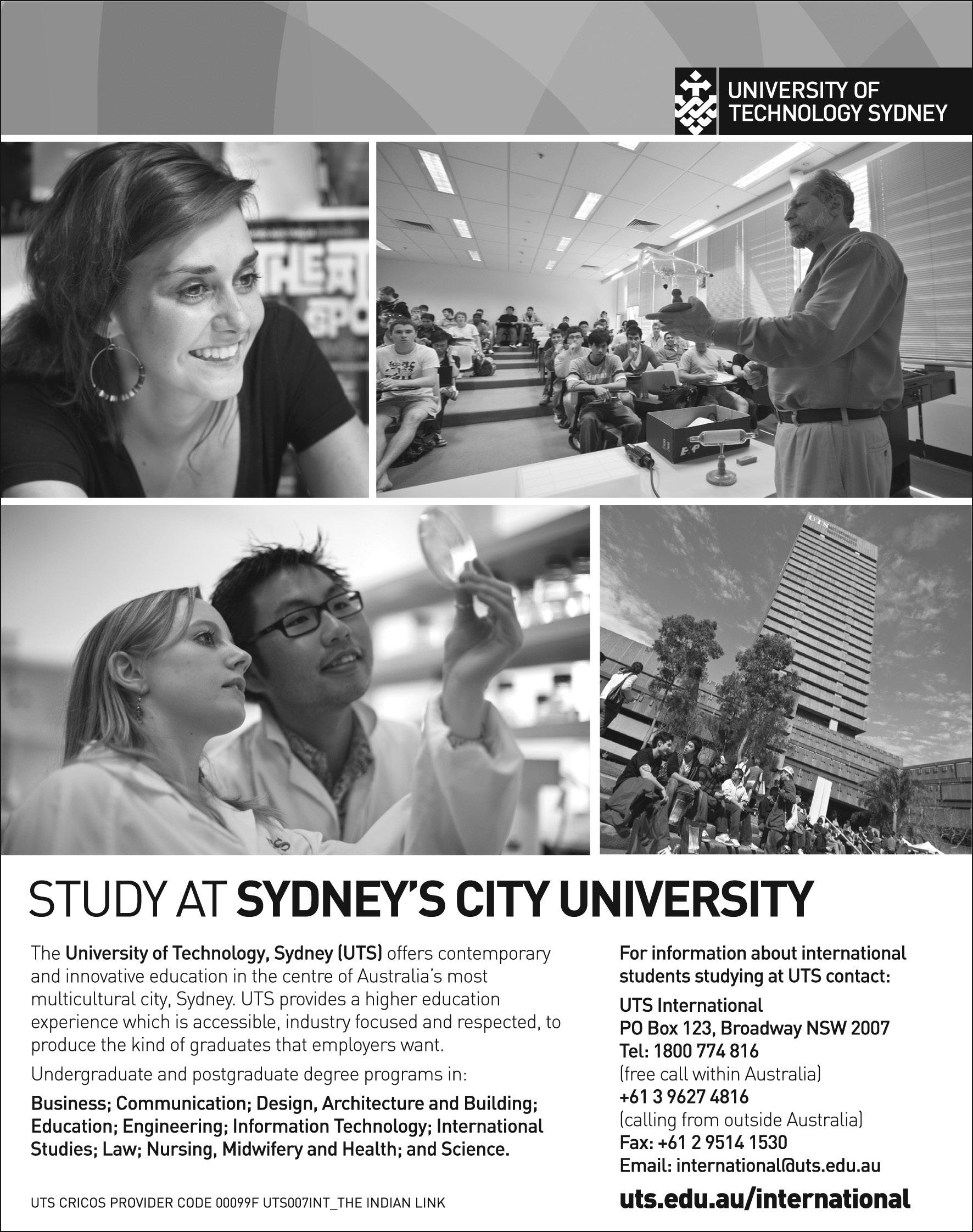
7 minute read
Results of Indian Link’s India Fair special promotion
from 2009-09 Sydney (1)
by Indian Link

Congratulations to the following people who have won prizes in Indian Link Radio’s special India Fair promotion on 9 Aug 2009
Ashish Chauhan FIVE DOCK
Barkha Prasad WENTWORTHVILLE
Charu Hurria ENFIELD
Dipankar Chatterjee NORTH PARRMATTA
Dr. Rajiv Mudgil WOLLONGONG
Harshitha PEMULWUY
Hemlata Purohit MACQUARIE FIELDS
Jagdish Shah HOMEBUSH
Kannika Shetty PARRAMATTA
Kedarnath Pagaddinnimath WEST RYDE
Lakshmi Sekhar MERRYLANDS
Lumbhani Rupa Rupesh SOUTH HURSTVILLE
Midhi Saxena ASHFIELD
Momin Shahir AUBURN
Muhsin Dadarkar BANKSTOWN



Naqiyah Attarwala NEWINGTON
Nilesh Shah WINSTON HILLs
Nindiya Sharma BLACKTOWN
Nitin Puri HOMEBUSH WEST
Padma Priya MJ SUTHERLAND
Pallavi Chauhan FIVE DOCK
Prasanth WEST RYDE
Rajesh Kalra HAYMARKET
Ranajit Joshi INGLEBURN
Ravi Bhat CHESTER HILL NSW
Rishi Gopalani WOLLSTONECRAFT
Ronald Castelino ST PETERS
S. Ravi WEST HOXTON
Sangeetha Srinivasan MEADOW BANK
Seema PENDLE HILL
Shanthi Daniel WATTLEGROVE
Sharda Shrivastava BRIGHTON LE SANDS
Srinivas MINTO
Sumiya Khanum GUILDFORD
Suresh Kumar ERSKINE PARK
Suresh
Triveni WEST RYDE
YSR, a Congress icon and a true mass leader YSR was a true mass leader, one who ruled the hearts of people in Andhra Pradesh.
For Yeduguri Sandinti Rajasekhara Reddy, YSR in short, the end came while serving the very people who had reposed their faith in him by voting him to power for a record second consecutive term in May this year.
A doctor by profession, YSR was very close to the public pulse and carved a niche for himself by taking up revolutionary public welfare schemes, which had become a model for other states in the country.
Undoubtedly one of the most popular leaders Andhra Pradesh ever produced, YSR’s death has not only created a vacuum in the state politics but dealt a major blow to the ruling Congress party.
One of YSR’s main achievements was subduing the ultra-left Naxalite insurgency in the state that had one time gripped 21 of its 23 districts. In the process, the People’s War Group (PWG), once the dominant Maoist group in India, was crushed beyond recognition.
YSR, who turned 60 on July 8, came up the hard way in his public life spanning three decades. He emerged as one of the strongest state leaders and also set new records in the state’s political history. By retaining power in Mah, he became the first Congress chief minister to retain power in Andhra Pradesh after serving a full five-year term.
YSR, whose popularity among masses is often compared with that of the legendary N.T. Rama Rao or NTR, proved his charisma by winning the elections on the plank of his political and administrative credibility. Without promises of free colour televisions and cash doles and without banking on cine glamour, he proved why he was more popular among masses.

Popular as a “people’s leader” among his followers, YSR was successful despite facing a hostile poll campaign from both the Telugu Desam Party-led four-party Grand Alliance and the Praja Rajyam Party of actor-turned-politician Chiranjeevi. He emerged as a real hero in the election battle dominated by film stars. Seen by political rivals as an aggressive leader but adored by followers, YSR had always been a winner.
Elected to the state assembly for the fifth time, YSR was also a four time Lok Sabha member and he held the record of never losing an election.
The man who singularly spearheaded the Congress campaign this year not only retained power but also ensured that the party gets 33 out of 42 Lok Sabha seats.
When he took over as chief minister on May 14, 2004, it was a dream came true for YSR. The leader from the badlands of Rayalaseema had come up the hard way.
Born in a middle class family in Pulivendula, a small town in Kadapa district, on July 8, 1949, YSR made a modest beginning. The eldest of five sons of Y.S. Raja Reddy, a dynamic local leader, he evinced interest in politics while studying at the M.R. Medical College in Gulbarga in Karnataka.
After studying MBBS, YSR served as medical officer at the Jammalamadugu Mission Hospital for a brief period. In 1973, he established a 70-bed charitable hospital.
He entered active politics in 1978 and was elected to the state assembly from Pulivendula. He served as state minister from 1980 to 1983 and retained the assembly seat in 1983 even when NTR swept to power with a mammoth victory.
Sensing a potential leader in him, then prime minister Indira Gandhi appointed YSR president of the state unit of Congress when he was only 34 years.
In 1989, he was elected to Lok Sabha from Kadapa constituency and held the seat till 1999, when he shifted again to state politics. From 1998 to 2000 he was president of the state Congress again.
The year 2003 was a turning point in his political career as he undertook a 64-day ‘padayatra’ or walkathon across the state. Covering 1,500 km in the scorching sun, he received petitions from people over their numerous problems, mainly relating to agriculture and unemployment.
It was this ‘padyatra’ which catapulted YSR to power. His experiences during the tour helped him shape up his policies after assuming office, as he implemented free power for farmers, waived off their loans, introduced several welfare schemes like pension for the aged, widows and handicapped, housing for poor, Rs.2-a-kg rice, a ‘Rajiv Arogyasri’ or community health insurance scheme and a massive programme to build irrigation projects.
Even his last visit to Chittoor district -which never materialised as the helicopter in which he was travelling crashed in bad weather -- was to launch another innovative mass contact programme to know the people’s problems.
‘BJP needs to be in touch with aspirations of young India’
INDIA’S MAIN opposition party, the Bharatiya Janata Party (BJP), is in turmoil and only a leadership overhaul coupled with infusion of young blood can reenergise it, say many within and outside the party as they point to its dismal election performance followed by bitter infighting.
Whatever is happening in the BJPthe second largest party after the ruling Congress - is symptomatic of the it is suffering from,
Pralay Kanungo, political science professor at Jawaharlal Nehru University (JNU).
Continued on page 34

“A leadership crisis coupled with a generational gap kept the BJP away from the aspirations of young India, which led to its election defeat. And then the top brass began passing the buck and nobody, including senior leaders, had the courage to own up the failure,” Kanungo told IANS.
G.V.L. Narasimha Rao, the party’s national executive member, said the BJP needs a leadership revamp and only young blood can make up for the losses the party inflicted on itself.
“The party is well aware of its crises and has decided to undergo a generational transition. The need to evolve with young leaders was discussed at the chintan baithak (leadership meeting) in Shimla last month,” Rao told IANS.
“The party under the leadership of L.K. Advani is drawing up a plan for its revival and we are hopeful we will bounce back,” he said.
BJP Vice President Mukhtar Abbas Naqvi agreed that young blood was the need of the hour. Naqvi told IANS: “Yes we need more of young blood in the party to reorgansie the structure and more new ideas to revive the ideological soul of the party.”
Even the members of the youth wing opine that the party needs to take into account the “inspirations and ideas” of the young.
“Party should provide a platform to the students from the youth wing so that their energy can be utilised and an interaction channel established to get a feedback for the aspirations and the ideas of the youngsters,” said Akhil Bhartiya Vidyarthi Parishad’s (JNU) media advisor Saurabh Dubey.
Other scholars also echo the opinion that along with young leaders, the party of the ideological right also needs new ideologies. “Politics of symbolism and identities is becoming irrelevant in the present times.
Policies and ideas embedded in 18th century are not going to help the BJP. It has to become more receptive of 21st century generation and inclusive to broaden its vote base,” Delhi University’s political research scholar Pradeep Singh told IANS.
An unprecedented turmoil has shaken up the BJP, which in May suffered a huge defeat in the Lok Sabha elections. The BJP’s tally fell from 130 in the 2004 polls to 116 this year. The Lok Sabha has 543 elected members.
This was followed by senior leaders like Arun Shourie, Jaswant Singh and Yashwant Sinha criticising the party leadership and asking it to fix responsibility for the defeat.
The party suffered more trouble after it sacked Jaswant Singh for praising Pakistan founder Mohammed Ali Jinnah in his controversial book - “Jinnah: IndiaPartition, Independence”.
Singh’s expulsion was questioned by senior party leaders like Sinha and Shourie who even called the BJP a “kati patang”(adrift kite). Former chief ministers Vasundhara Raje of Rajasthan and B.C. Khanduri of Uttarakhand also denounced the party for forcing them out of their positions in their respective states.
Sacked from the party, Jaswant Singh told IANS that if the party wants to remain relevant in contemporary politics, it has to come out of its “19th century obsolete ideas”.
“The BJP should not come across as a 19th century organisation raising obsolete issues. In politics, perceptions are just as important if not more important than reality. Ram Setu and Babri Masjid are non-issues for people now,” he said.
Kanungo is of the view that the party ideologues “have to change their view... they should be more futuristic” and not stick to history, which is of no relevance outside academic interests for youth.
“To appeal to youth that form a majority of India’s population, the party needs to come up with ideas like better education, employment opportunities.
“Today’s youth talk about future without caring about the burden of history,” he pointed out.
The party’s ideological parent, the Rashtriya Swayamsevak Sangh (RSS), is now seen as playing a key role in helping rejuvenate the BJP. Asked by the RSS to oversee a transition in party leadership, Advani is set to launch a countrywide tour by Sep 15 to interact with cadres and search for young talent that can be inducted into the party, party sources said.
Pankaj Advani new Billiards world champion
Pankaj Advani finally scaled the last big peak in his path to greater glory on the green baize when he defeated ninetimes champion Mike Russell in the final of the World Professional Billiards tournament at Leeds.

